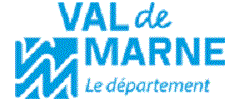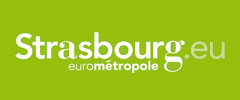Implementing Agenda 2030 in Georgia: Where Are We Now?
WECF organised with Georgian government and the UN a workshop on the Sustainable Development Goals in Tbilisi, 19-21 February 2018
22.02.2018 |Tbilisi, Georgia
On 19-21 February 2018 WECF organised, with the Georgian government and the UN, a workshop on the Sustainable Development Goals in Tbilisi, Georgia, focussing on the interlinkages between environment, health and gender.
On the 21 February 2018 the workshop focused on the Sustainable Development Goal on Gender Equality – SDG5, aiming to set the ways of achieving meaningful progress in political and economic empowerment of women in Georgia by 2030.
Women in Georgia
Speaking at the opening of the meeting, Mariam Jajanidze, Advisor at the Human Rights Secretariat of the Government of Georgia and the Secretary of the Inter-Agency Commission on Gender Equality, Violence against Women, and Domestic Violence, stresses that SDG5 is connected with all national policies.
“Important work has been done by Georgia to ensure that all SDGs have gender-sensitive indicators. Following the national agenda 2030, the country will take effective steps to increase women’ economic participation, promote equal economic opportunities for women and men, advance gender balance in decision making, and end violence against women and girls,” Jajanidze said.
The 3rd day focus lie on gender equality in all SDGs in cooperation with numerous partners including UNEP, UNDP, WECF and partners. WECF presented the ongoing work of the Women2030 program, a program in 50 countries engaging gender experts and women’s rights movements in the implementation of the SDGs.

Sascha Gabizon, Executive Director of WECF, noted the role of gender equality in the process of democratic transformation: “The real social-economic transformation requires the achievement of the SDGs till 2030 in Georgia, and the key lever is gender-equality,” she said.
Cooperation and Partnership for the SDGs
Gigi Bregadze, Democratic Governance Team Leader of the United Nations Development Programme (UNDP) in Georgia, focused on cooperation and partnership for the SDGs.
“The sustainable development agenda provides Georgia with the unique opportunity to make a major step forward and eliminate gender inequalities in all aspects of life. This, however, requires a collective effort of the Georgian society, coordinated work of the government, non-governmental and private sectors, and the media, supported by Georgia’s international partners,” Bregadze said.
Access to Economic Resources
The discussions at the meeting covered a range of issues, including the low access of Georgian women to economic resources, pay gap, unequal distribution of labour and low representation of women in decision-making.
The participants listened to Helena Sancho, Deputy Head of Development Co-operation at the Embassy of Sweden in Georgia; Levan Avalishvili, Programs Director of the Institute for Development of Freedom of Information (IDFI), representatives of the Gender Equality Council of the Parliament of Georgia, gender experts and researchers from We Research and International Republican Institute (IRI).
The meeting was organized by WECF, IDFI, UNDP, Embassy of Sweden in Georgia and the Administration of the Government of Georgia.

Related News
Rural Georgians look to the sun to ease energy poverty
Video (6 min): by Deutsche Welle & Maria Lesser on our project in Georgia
04.06.2018
Implementing Agenda 2030 in Georgia: Where Are We Now?
WECF organised with Georgian government and the UN a workshop on the Sustainable Development Goals in Tbilisi, 19-21 February 2018
22.02.2018 | Tbilisi, Georgia
Round table discussion Violence Against Women and Economic Development
The round table treated the topic of Violence against women and Economic Development
13.12.2017
Sustainable Development Goal # 5 Gender Assessment in Georgia
This research was conducted by the organization We Research within the auspices of the project ‘’Women 2030’’ funded by the European Union and implemented by WECF International
27.09.2017
Feasibility study of gender-sensitive energy cooperatives in Georgia, Ukraine, Armenia and Moldova
New report by WECF offers report offers an overview of the feasibility of gender-sensitive energy cooperatives in Georgia, Ukraine, Armenia and Moldova.
12.05.2017





































